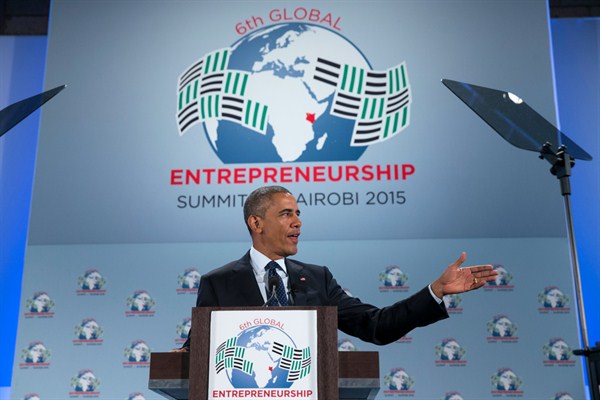NAIROBI, Kenya—When U.S. President Barack Obama attended the Global Entrepreneurship Summit in Nairobi, Kenya, in July 2015, it helped place Africa in the global limelight as an emerging entrepreneurship hub. At the event, global leaders, business executives, mentors, young entrepreneurs and high-level government officials reiterated the crucial role of entrepreneurship in economic development, creating new jobs, driving technological innovations and enhancing economic growth. Many speakers specifically called for African governments to put in place strategies to support the growth of enterprises.
Africa is already taking advantage of its youth demographic dividend to push young entrepreneurs to contribute to the continent’s economic transformation. Ghana and Kenya, which tout themselves as gateways to West Africa and East Africa respectively, have featured prominently in this trend, with youth increasingly focusing on the use of mobile technology to improve agricultural production and encourage governmental and policy support for youth-driven innovation and enterprises. But more can and must be done for African nations to diversify their economies sustainably.
As recently as two decades ago, Africa was hardly represented on the global business map due to its insignificant contribution to the global economy. All economic indicators pointed to a continent headed for a disaster. But gradually, Africa has begun to establish itself on the global stage as a hub for economic growth and business opportunities. While poverty persists in many countries, others—such as Ivory Coast, Tanzania, Senegal, Rwanda and Kenya—have undergone rapid economic transformation, inspiring great optimism and attracting investors from around the world.

